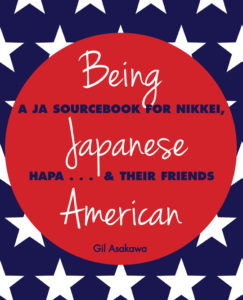Some people think Japan’s earthquake and tsunami are payback for Pearl Harbor? Really?
 I was shocked, saddened and depressed when I learned that there are people in the United States who think that the Tohoku Kanto Earthquake and subsequent tsunami, which has caused enormous damage and casualties that will surely top 10,000, is some sort of karmic payback for Japan's bombing of Pearl Harbor. Really? Seriously?
Yes, unfortunately. Here's just a sampling of some updates and comments from Facebook that rant about Pearl Harbor and the tsunami, and how the U.S shouldn't send any aid to Japan:
I was shocked, saddened and depressed when I learned that there are people in the United States who think that the Tohoku Kanto Earthquake and subsequent tsunami, which has caused enormous damage and casualties that will surely top 10,000, is some sort of karmic payback for Japan's bombing of Pearl Harbor. Really? Seriously?
Yes, unfortunately. Here's just a sampling of some updates and comments from Facebook that rant about Pearl Harbor and the tsunami, and how the U.S shouldn't send any aid to Japan:
Who bombed Pearl Harbor? Karmas a bitch. Do I feel bad for japan? Two words....pearl harbor Dear Japan, it's not nice to be snuck up on by something you can't do anything about, is it? Sincerely, Pearl Harbor. screw japan they got what they dederve. any remember pearl horbor I do .they killed thousands of anericans and would do it again. kill em all let god sort emm out. Now the people in japan know how we felt during pearl harbor when they made are man abd women float in the ocean... Its god way of sayng theres too many chinese here imma take u out lol If they didn't bomb pearl harbor this wouldn't have happened. Gods way of tell japanese people there gay all yall remember pearl harbor when yall give money to japan OMG!!! Im so sick of people "praying for Japan" :we should help" i don't know wha happened in yall brain but they're the same people that bombed Pearl Harbor! get it together mane, I have no sympathy for em, Tragic stuff happen every single day!! Obama To Offer Assistance To Earthquake.. We have starving people in this country, people with housing /medical needs and other life substaining essentials yet USA runs to the rescue, who's going to rescue us the overinflated porices does any 1 remember "PEARL HARBOR"??? AGAIN TAX PAYERS WILL END UP PAYING AT THE END OF THE DAYI'm all for free speech and these people have a right to say what they think, even if it's ignorant, misinformed and downright hateful. But these thoughts are worrisome because they seem so cavalier, so easy for these people to express.





 Today is the third anniversary of the "War Against Asians" controversy, which was sparked by an ill-advised and poorly executed satire in the Campus Press, the student-run news website of the University of Colorado in Boulder. I remember the date because it ran on Feb. 18 -- one day before the annual Japanese American observance of Day of Remembrance, when President Roosevelt signed Executive Order 9066, which led to the internment of 110,000 people of Japanese Ancestry, half born in the US and therefore American citizens.
So here was this commentary by a young student journalist, who thought it would be appropriate to make fun of Asians on the CU campus in a piece titled "If it's war the Asians want... it's war they'll get." In my
Today is the third anniversary of the "War Against Asians" controversy, which was sparked by an ill-advised and poorly executed satire in the Campus Press, the student-run news website of the University of Colorado in Boulder. I remember the date because it ran on Feb. 18 -- one day before the annual Japanese American observance of Day of Remembrance, when President Roosevelt signed Executive Order 9066, which led to the internment of 110,000 people of Japanese Ancestry, half born in the US and therefore American citizens.
So here was this commentary by a young student journalist, who thought it would be appropriate to make fun of Asians on the CU campus in a piece titled "If it's war the Asians want... it's war they'll get." In my 

